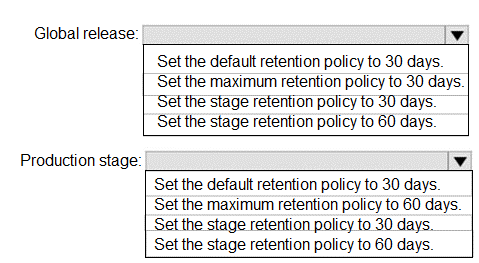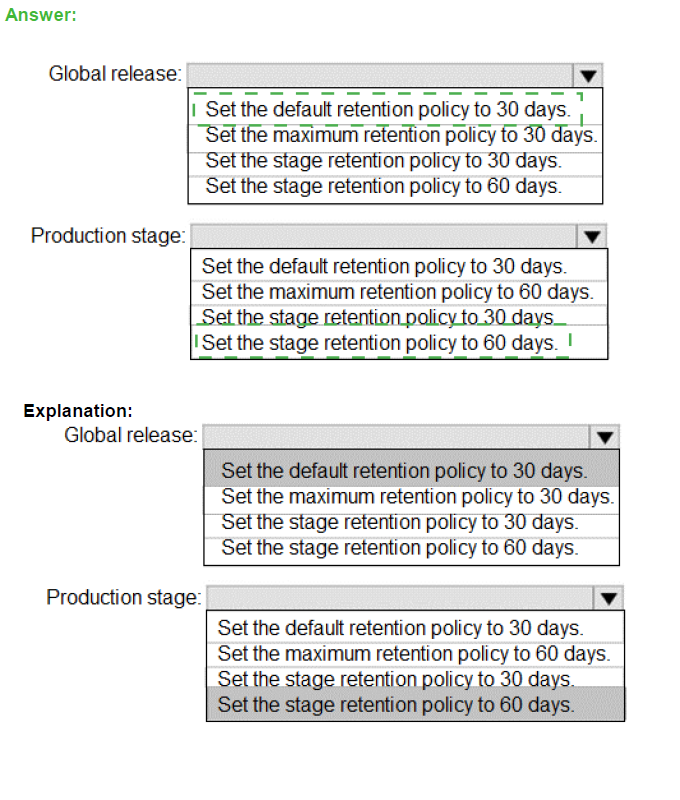
- Email support@dumps4free.com

Topic 4: Mix Questions Set
You have an Azure web app named webapp1 that uses the .NET Core runtime stack. You have an Azure Application Insights resource named Applnsight1. Webapp1 sends telemetry data to Applnsights1. You need to ensure that webapp1 sends the telemetry data at a fixed sampling rate. What should you do?
A. From the code repository of webapp1, modify the Applicationlnsights.config file.
B. From the code repository of webapp1, modify the Startup.cs file.
C. From Applnsights1. modify the Usage and estimated costs settings.
D. From Applnsights1, configure the Continuous export settings.
You have an Azure virtual machine that is monitored by using Azure Monitor. The virtual machine has the Azure Log Analytics agent installed. You plan to deploy the Service Map solution from Azure Marketplace. What should you deploy to the virtual machine to support the Service Map solution?
A. the Telegraf agent
B. the Azure Monitor agent
C. the Dependency agent
D. the Windows Azure diagnostics extension (WAD)
Note: This question is part of a series of questions that present the same scenario. Each
question in the series contains a unique solution that might meet the stated goals. Some
question sets might have more than one correct solution, while others might not have a
correct solution.
After you answer a question in this section, you will NOT be able to return to it. As a result,
these questions will not appear in the review screen.
Your company uses Azure DevOps to manage the build and release processes for
applications.
You use a Git repository for applications source control.
You need to implement a pull request strategy that reduces the history volume in the
master branch.
Solution: You implement a pull request strategy that uses a three-way merge.
Does this meet the goal?
A. Yes
B. No
Instead use fast-forward merge.
Note:
No fast-forward merge - This option merges the commit history of the source branch when
the pull request closes and creates a merge commit in the target branch.
Note: This question n part of a series of questions that present the same scenario. Each
question in the series contains a unique solution that might meet the stated goals. Some
question sets might have more than one correct solution, while others might not have a
correct solution.
After you answer a question in this section, you will NOT be able to return to it. As a result these questions will not appear in the review screen.
You have an approval process that contains a condition. The condition requires that releases be approved by a team leader before they are deployed.
You have a policy stating that approvals must occur within eight hours.
You discover that deployments fail if the approvals lake longer than two hours.
You need to ensure that the deployments only fail if the approvals take longer than eight hours.
Solution: From Pre-deployment conditions, you modify the Timeout setting for pre-deployment approvals.
Does this meet the goal?
A. Yes
B. No
How should you configure the release retention policy for the investment planning
applications suite? To answer, select the appropriate options in the answer area.
NOTE: Each correct selection is worth one point.


Scenario: By default, all releases must remain available for 30 days, except for production releases, which must be kept for 60 days.
Box 1: Set the default retention policy to 30 days
The Global default retention policy sets the default retention values for all the build pipelines. Authors of build pipelines can override these values.
Box 2: Set the stage retention policy to 60 days
You may want to retain more releases that have been deployed to specific stages.
| Page 5 out of 98 Pages |
| Previous |